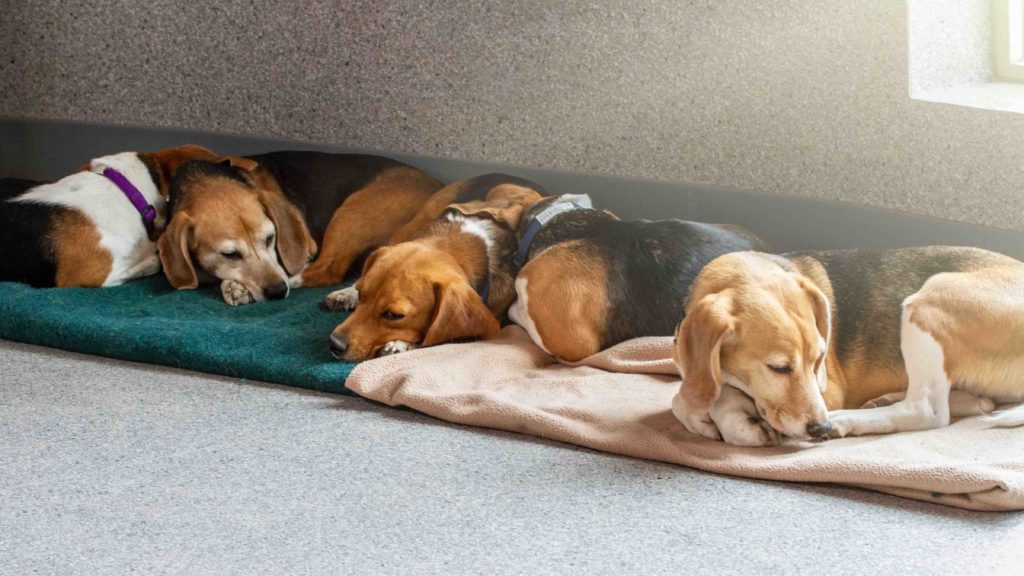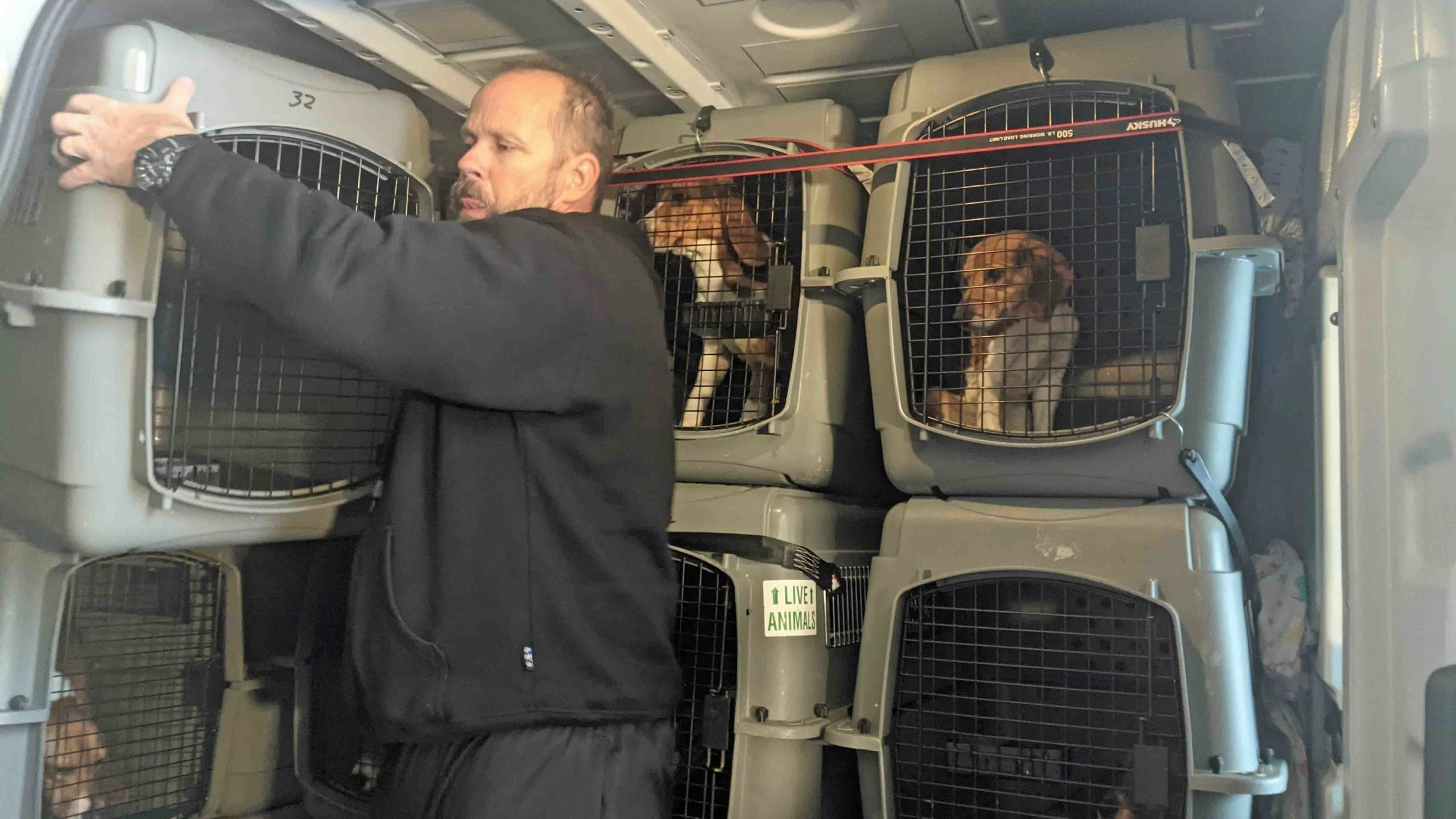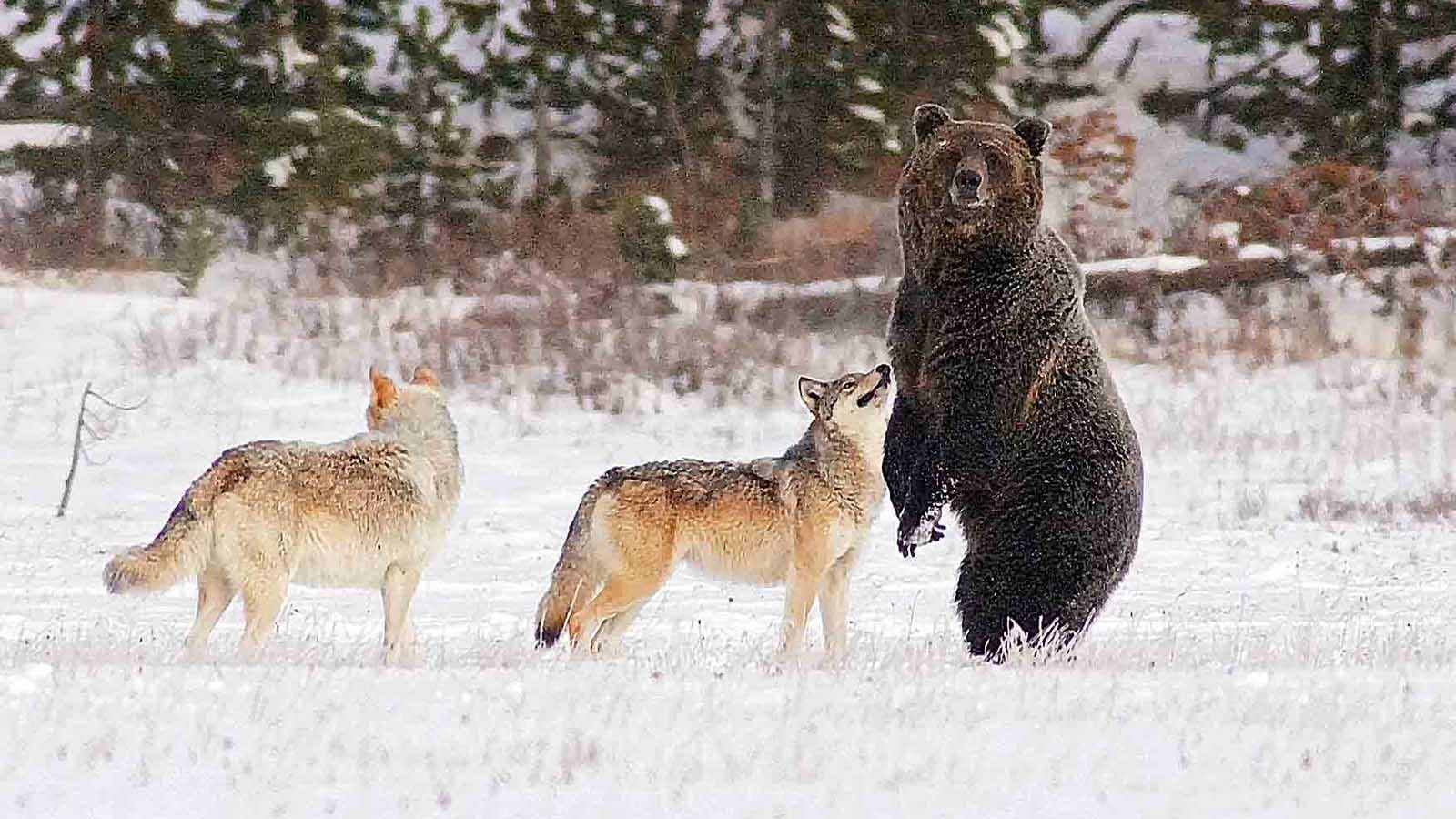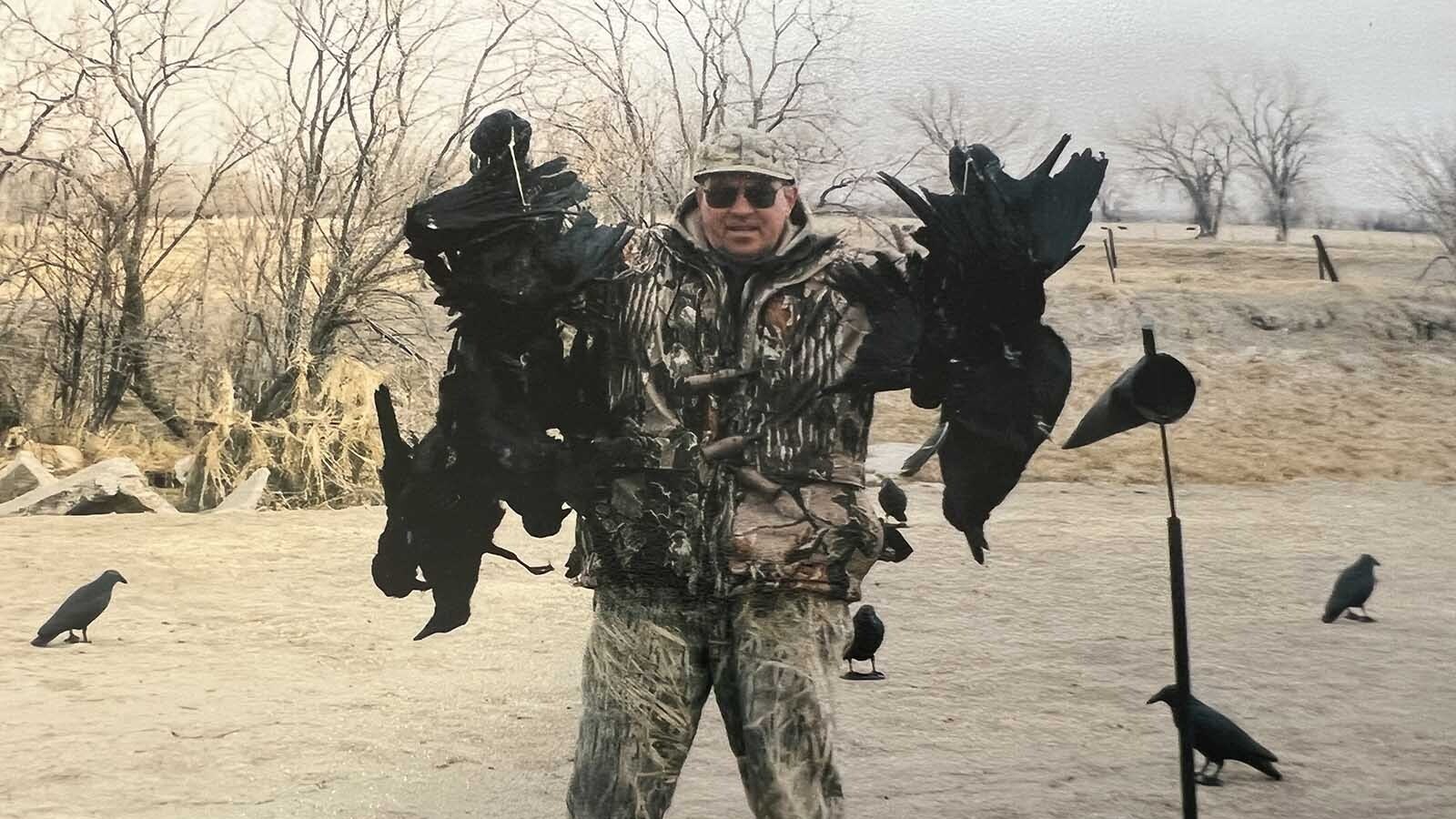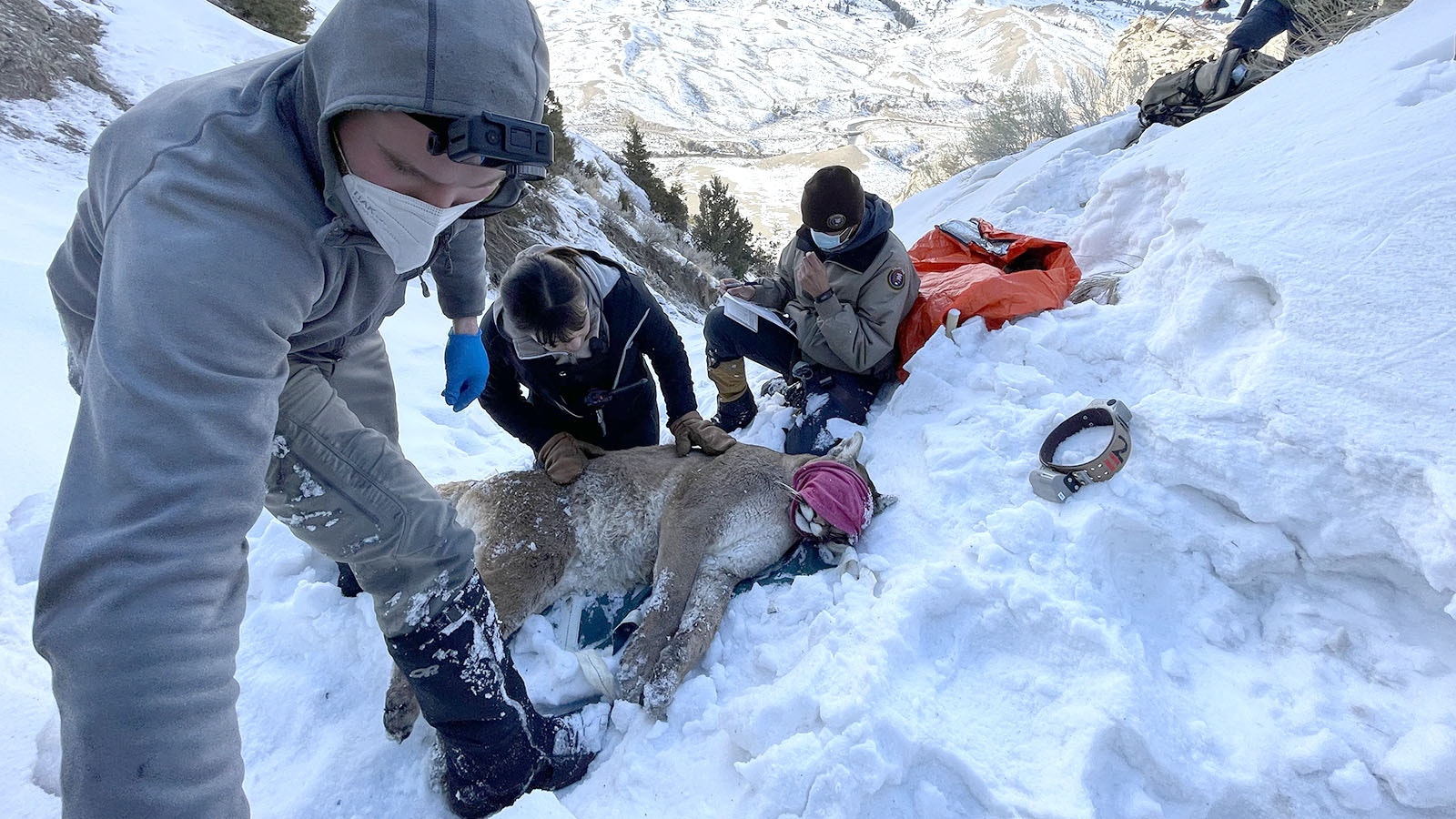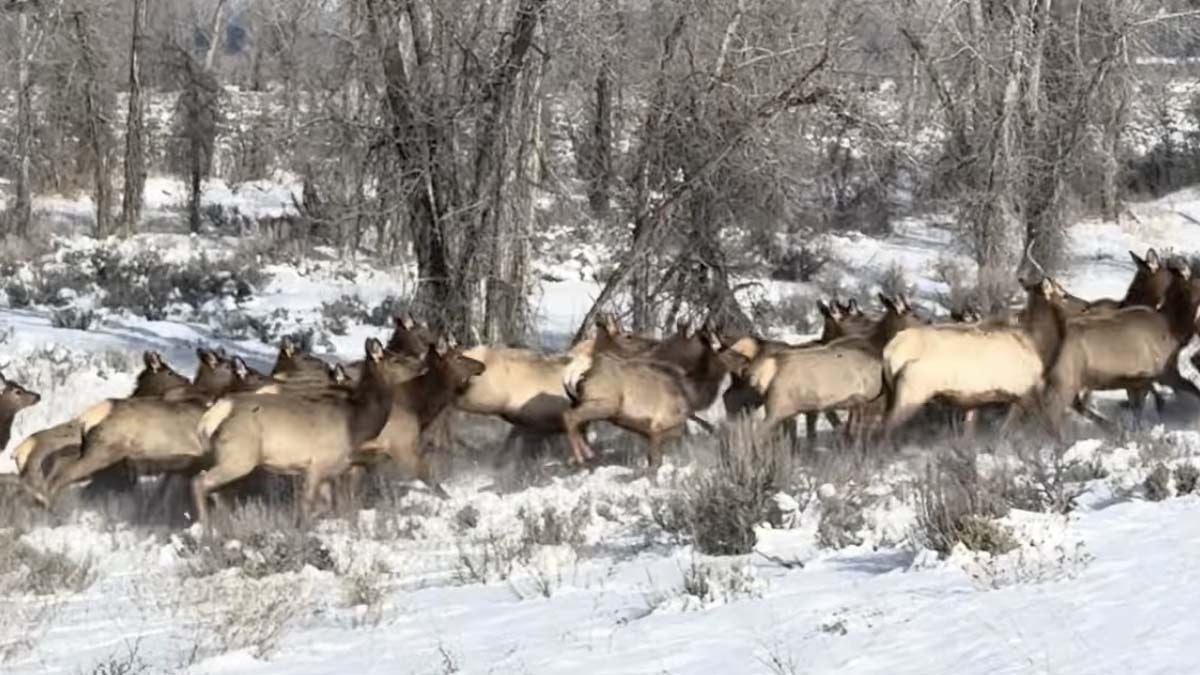By Jennifer Kocher, Cowboy State Daily
Video shot and produced by Mike McCrimmon
The truck was less than 5 miles away Wednesday night as the handful of Kindness Ranch staff members waited in the barn in silent anticipation.
A lot of emotion was tied up in this moment. In fewer than 15 minutes, 30 beagle pups would be arriving, part of a 150-beagle puppy rescue operation from a breeding facility in Virginia that had recently come under national scrutiny after numerous citations regarding their practices.
“To be able to intercept dogs before they were sold to research is unheard of and an opportunity that we could not pass up,” said John Ramer, director of the Kindness Ranch.
As the small four-person team of dog trainers and behavioral specialists waited for the van to arrive, Ramer explained the complicated range of emotions felt by him and his staff. It’s a bittersweet moment of sadness and elation in what he called the “Nirvana of the rescue world.”
The hard part is seeing the terror in the animals’ eyes when they arrive to see yet more “scary humans” waiting to greet them.
The joy, however, Ramer said, comes immediately following as the puppies begin to take their first steps out of the lab world.
“We try to focus on the happy moment of saving all these souls,” Ramer said. “We don’t focus on the negative.”
The facilities the beagles came from breeds the beagles specifically for use in medical and laboratory research. Were it not for this rescue mission, the pups likely would have been sold to research facilities for up to $1,500 a puppy, and probably euthanized upon the end of the studies, which can run anywhere from six months to three years.
The Kindness Ranch provides an alternative for these former lab animals. The 1,000-acre rescue sanctuary near Hartville in the southeast corner of the state is the only animal sanctuary of its kind in the country that rescues only lab animals, including dogs, cats, rabbits, pigs, sheep, goats, horses, cows and most recently, four llamas from a college vet tech program.
Once at the sanctuary, the animals receive round-the-clock attention from live-in caretakers who spend their days attempting to train and socialize the animals for adoption or a comfortable life at the ranch’s no-kill shelter, depending on their adoptability.
Beagle Saves
Beagles, it turns out, are highly adoptable. They also comprise the bulk of the residents at the Kindness Ranch given their popularity as a lab animal. Not only are they highly adaptable with a low pain threshold, they also have a fairly low “fight or flight” response that makes them easier to work with than the more aggressive breeds.
Wednesday’s intake of new beagle puppies was one of several for Ramer, who has spearheaded many such operations.
Since taking over as director just less than three years ago, Ramer – who has spent the bulk of his career saving and rehabilitating animals including more than a decade working in a wolf sanctuary – has become a maverick when it comes to large-scale, national rescues.
Part of his success is his ability to navigate the thorny politics of rescuing lab animals and to form working relationships with facilities which let him take the animals as opposed to euthanizing them. He also has active partnerships with animal rescue operations throughout the country who often team up to split up the rescued animals among themselves and coordinate logistics.
Last week, Ramer was in Virginia spearheading the release of the 150 puppies that were ferried en masse to southern California by transport drivers Charles and Lisa Price of Priceless Pets in Chino Hills, California. The puppies had spent the last few days at Priceless Pets being checked over and sorted into groups to be driven to various facilities. First to be delivered were the 30 pups coming to Wyoming.
By Wednesday evening, the husband wife team had been driving for the past 20 hours with minimal stops to feed and water the beagles as part of their “no paws on the ground” transport services.
Waiting For Dogs
As the van backed into the open door of the barn, the staff put on their best faces to greet the new intakes.
This recovery was much different than others, Ramer noted, because none of these animals have yet been to a research facility and are coming straight from the breeder who referred to them as cream of the crop.
Kindness Ranch staff members Val Yuravak and 19-year-old Alaina Maiers have been through this before as they excitedly waited for the van doors to open. New hire 26-year-old Hannah Towne was not quite sure what to expect.
All were busy thinking up names.
As with every new batch of new dogs, the staff had picked a theme in advance to provide guidance for naming the pups. Up until that point, the animals had been identified only by the string of letters and numbers assigned by the facilities for U.S. Department of Agriculture tracking purposes.
“This is one of the most fun parts,” companion animal manager Steven Lee said.
The last batch of puppies to arrive was named from states and capitals while the one before was trees. This time it’s Zodiac signs and constellations.
As simple as it might sound, given that most new owners change the names of the puppies when they are adopted anyway, Lee said it’s a special time for he and his crew.
“It can be a really tough job,” he said. “Rewarding, but tough. This is just one of those times to have some fun and help them feel welcome.”
Lee, who is relatively new to the world of animal sanctuaries, was born in New York City and spent the bulk of his career working in the high stress world of software engineering in California.
Where some might feel out of place in the middle of nowhere, the 55-year-old feels right at home as he gets the group of dog trainers lined out for “go time.” This will be his fifth intake, he said, explaining the chaos that would ensue the second the “kids” were unloaded.
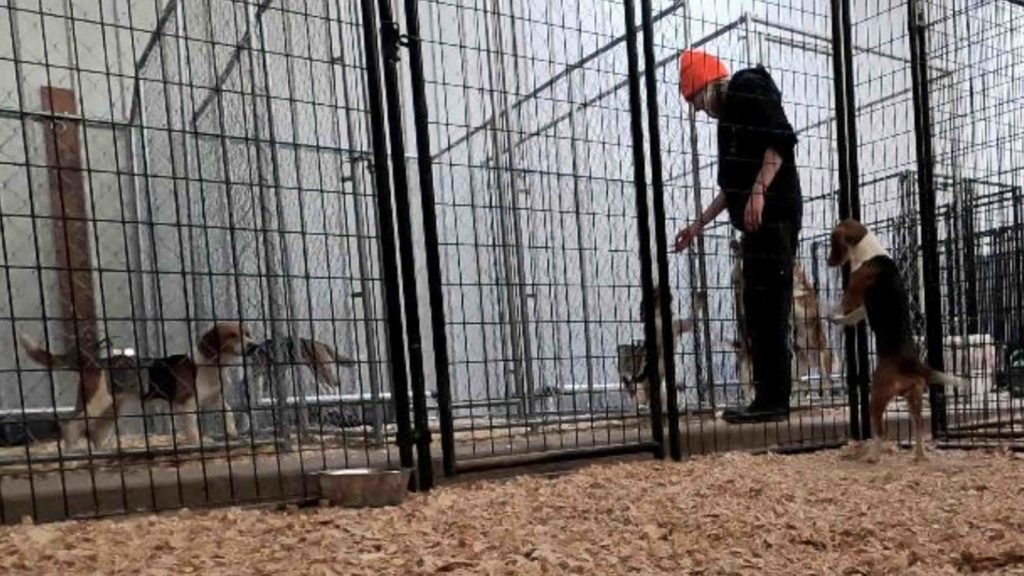


Organized Chaos
The best way to describe the unpacking of 30 large crates full of barking one and one-half year-old beagles from the van is chaos. This is normal, Ramer said, as the staff worked through the initial shock the eardrum breaking staccato of shrill barking as they started an assembly line to unpack the dogs.
Once a dog was pulled from the crate, it was checked for sex. Staff had no idea how many of each gender they were getting, but were told to expect a lot of girls. This turned out to be accurate as the dog runs filled with tiny, barking females.
For this intake, a large corner of the barn had been cordoned off with two rows of fenced dog runs and several large overhead heat lamps to keep them toasty during their 5-day quarantine.
“Girl, boy, this one is peeing,” one staff member reported as she and her colleagues ducked around one another – dogs in hand – to sort them in runs with the appropriate gender.
As they work, the staff can’t help but be distracted by several of the beagles vying for their attention with paws and snouts through the open fencing as the puppies work through their mixed response of terror and jubilation.
Sometimes it’s a split-second reaction. When Val stopped to pet a couple female puppies who were barking in her direction, one cowered in the corner of its pen on shaking legs as Val coaxed the puppies over to her.
One belly-crawled over to her while the other watched from the a bed in the corner, as foreign to the pups as are the friendly faces on the people waiting to pet them.
It took less than 30 seconds for the shaking puppy to collapse on its back as Val scratched its belly. Meanwhile, its companion tentatively made its way over to Val on shaking legs before immediately jumping in the air in a fit of excitement that the staff referred to the “zoomies.”
These are the moments that still – even after his more than 20 years in the animal rescue business – bring tears to Ramer’s eyes.
It gets Ramer every time, he said, no matter how often he sees it. It also fuels his passion for saving as many animals as he can.
The first batch of beagle puppies will be neutered and spayed next week and put up for adoption by early March.
The Kindness Ranch is accepting donations and volunteers to help fund this and other rescues. They are also seeking to expand their foster base. For more information, see Kindness Ranch or contact them at: info@kindnessranch.org
